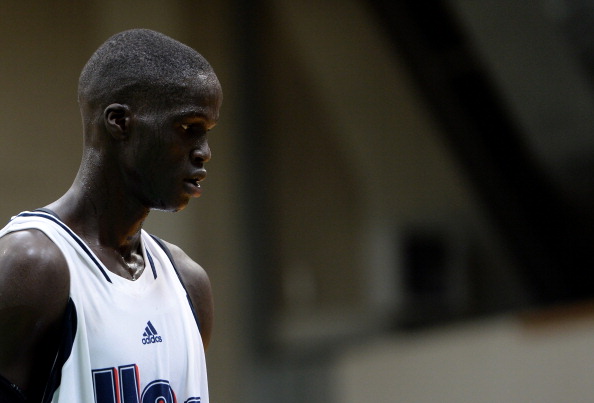Thon Maker is one of the most intriguing high school basketball prospects. At 7-1, he possesses great size, athleticism, and a surprisingly good crossover. That said, he is a raw talent. Only 19, Maker most recently played for Orangeville Prep for a 5th year of high school, despite receiving a high school diploma in June of 2015. For this reason, Maker’s camp believes he is eligible to enter the 2016 NBA draft, despite not attending college. We asked some of our writers to weigh in on Maker’s decision, and whether the NBA will grant him eligibility.
Zach Reynolds
Thon Maker’s NBA Draft status is going to come down to the precedent the NBA wants to set. It’s no secret that Adam Silver would like to make 20 the age minimum for the NBA, which would essentially create a two-and-done system. Would accepting Maker into the 2016 draft jeopardize that argument or make it stronger? Maker played two years of high school basketball in Virginia before moving to Canada, where he graduated from the Athlete Institute in Ontario. The decision comes down to whether his most recent year was a post-graduate year or another regular season of high school. It’s a lame answer, but I think his odds are close to 50/50. If he is granted entry into the draft, he should expect to hear his name called in the second half of the first round.
Daniel Coughlin
The NBA has been really progressive on a lot of issues. They had a position on the recent law enacted in North Carolina. They’re super social media friendly. Even toying with adding advertising to jerseys. It’s puzzling that they struggle when it comes to their relationship with amateur athletes. I cant think of a single reason that Thon Maker shouldn’t be able to take a shot at the pro level. He’s skilled and ambitious, if the boy wants to take a swing and someone wants to gamble on him, let it happen. Back to that jersey advertising thing; if the NBA is going to look into taking a page from the NASCAR book, or more accurately from the world of soccer, then let them do it right.
The NBADL exists for a reason, right? That’s where all the projects, long shots and journeyman ply their trade hoping for their next assignment, yeah? Isn’t that where teams send their projects – the guys who aren’t ready for the big show. If the NBA was smart, they’d stick with high school graduates who are at least 18 years of age, but let’s work this out for the benefit of all involved. The NBA allows those guys into the draft and if they are taken, they have to play one year in the D League before they can be called up. And the salary compensation would be similar, so no typical rookie scale deal. The first year is something under $500,000 and then they move up the following year with three years of team control (MLB sound familiar to anyone?). This would only apply to players coming out of high school. College and-one-done types would still be eligible for their current rookie-scale deals. Sure, the NCAA would probably hate that, but the NCAA has been profiting at the expense of others for a long time so hopefully that started a savings account.
Josh Cornelissen
Add The Sports Daily to your Google News Feed!
